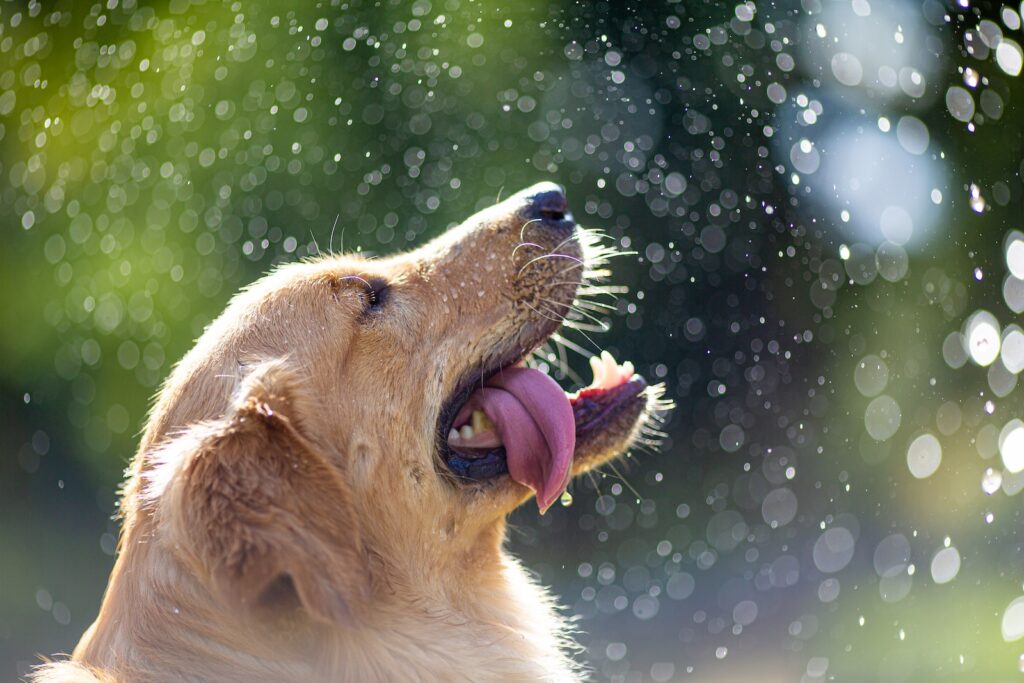Can Dogs Eat Goldfish? — No, They can’t
While goldfish may be a popular snack for humans, they are not suitable for dogs. Dogs should not consume goldfish as it can be harmful to their health. Goldfish are typically high in sodium and unhealthy fats, which can lead to digestive issues and potentially cause pancreatitis in dogs. It’s best to avoid feeding goldfish to your furry friend.
Can Puppies Eat Goldfish?
No, puppies should not eat goldfish either. The same reasons apply as with adult dogs – the high sodium and unhealthy fat content in goldfish can be detrimental to their developing digestive systems. It’s important to provide puppies with a balanced diet that meets their nutritional needs.
Things to consider when feeding goldfish to puppies?
It is best to avoid feeding goldfish to puppies altogether. Focus on providing them with appropriate puppy food that contains the necessary nutrients for their growth and development. Consult with your veterinarian to ensure you are meeting your puppy’s dietary requirements.
Nutritional Benefits of Goldfish for Dogs — Why Goldfish is/are good for Dogs? /Why Dogs can have Goldfish
1
Goldfish does not offer any significant nutritional benefits for dogs. They are low in essential nutrients and can potentially lead to health issues as mentioned earlier. Therefore, it is not advisable to consider goldfish as a suitable food option for dogs.
Potential Allergies: Can Dogs Be Allergic to Goldfish?
Dogs can develop allergies to a variety of foods, including goldfish. If your dog shows signs of an allergic reaction after consuming goldfish, such as itching, swelling, or gastrointestinal discomfort, it’s important to discontinue feeding them this food item. Consult with your veterinarian for further guidance.
Symptoms of Goldfish Allergies in Dogs
- Itching and skin irritation: Your dog may excessively scratch, lick, or chew their skin after consuming goldfish.
- Vomiting and diarrhea: Digestive upset, including vomiting and diarrhea, can indicate an allergic reaction to goldfish in dogs.
- Swelling and respiratory distress: In severe cases, dogs may experience swelling of the face, lips, or throat, accompanied by difficulty breathing.
What to Do If Your Dog Shows Symptoms?
- Discontinue feeding goldfish: If your dog exhibits symptoms of an allergic reaction, immediately stop feeding them goldfish.
- Contact your veterinarian: Reach out to your veterinarian for advice and guidance on how to manage your dog’s symptoms and to discuss alternative food options.
- Monitor your dog closely: Keep a close eye on your dog’s condition, and if the symptoms worsen or persist, seek veterinary care promptly.
Recommended Amount: How Much Goldfish Can a Dog Consume?
As goldfish are not a recommended food for dogs, there is no specific amount that dogs should consume. It is best to avoid feeding goldfish to dogs altogether and focus on providing them with a balanced and nutritious diet that meets their specific dietary requirements.
Things to Consider When Feeding Goldfish to Dogs
Feeding goldfish to dogs is not recommended due to the potential health risks associated with their high sodium and unhealthy fat content. Instead, opt for dog-friendly foods that are tailored to their nutritional needs, and consult with your veterinarian for appropriate dietary recommendations.
How to Feed Goldfish to Dogs: A Quick Guide
It is important to note that goldfish should not be fed to dogs. However, if you’re looking for alternative treats or foods to offer your furry friend, consider healthy options that are safe and beneficial for dogs. Always prioritize their well-being and consult with your veterinarian for any dietary concerns.
Recipe 1 Name
No goldfish recipe is recommended for dogs.
Recipe 2 Name
No goldfish recipe is recommended for dogs.
Recipe 3 Name
No goldfish recipe is recommended for dogs.
Conclusion
When it comes to feeding your beloved canine companion, it is essential to prioritize their health and well-being. While goldfish may be enjoyed as a snack by humans, they are not suitable for dogs. Goldfish can be detrimental to dogs’ digestive systems due to their high sodium and unhealthy fat content. Instead, focus on providing your dog with a balanced and nutritionally complete diet that meets their specific dietary needs. Consult with your veterinarian for proper dietary guidance to ensure your dog leads a happy and healthy life.






